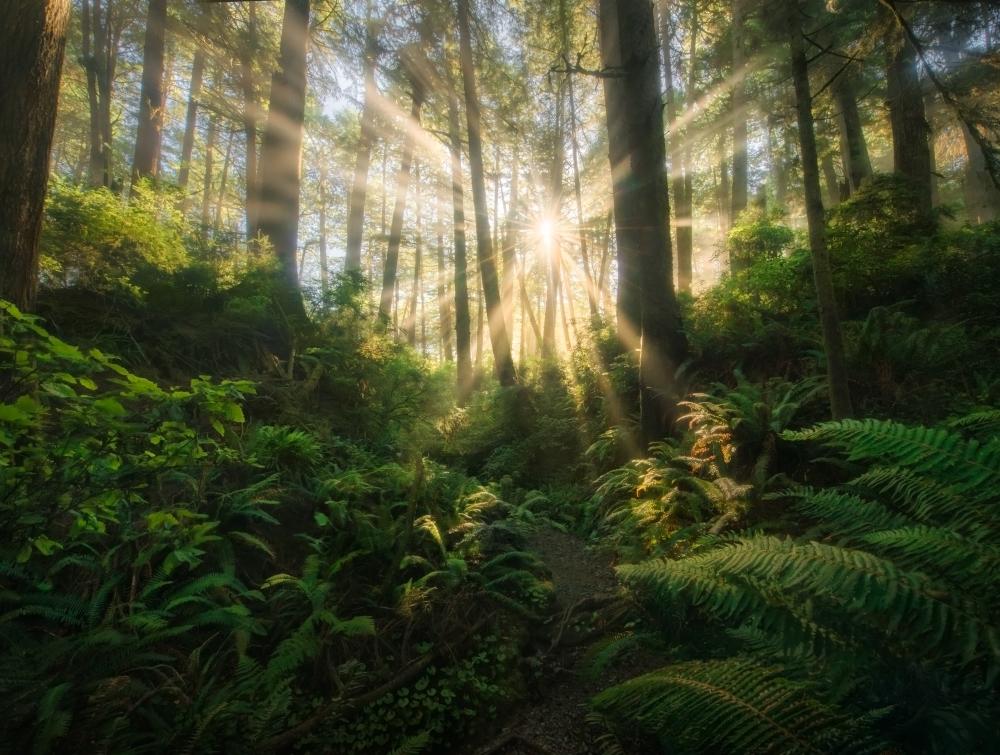U.S. Forest Service prepares major protections for remaining old-growth

Marc Adamus
Two upcoming proposals will detail how the Forest Service will manage some of the nation’s oldest forests.
Old trees are having a major moment across the country as the U.S. Forest Service prepares to unveil two important proposals to conserve old-growth forests nationally and in the Pacific Northwest.
The Forest Service signaled its intentions this winter when it sought public comment on two initiatives. First, on December 15th, the U.S. Forest Service announced that it would update the Northwest Forest Plan, the largest, truly science-based ecosystem and forest management plan in the country, to better meet 21st century challenges like climate change. Four days later, the agency followed up announcing its plan to adopt a nationwide forest plan amendment to create an approach for conserving old-growth across U.S. National Forests.
Now, the Forest Service is poised to release draft environmental impact statements soon which will open opportunities for the public to comment on each. These two initiatives will determine how the Forest Service will manage some of the nation’s oldest forests for years to come.
The 21st century demands major shifts in old-growth management
Thirty years since the Northwest Forest Plan overhauled federal old-growth forest management, the Forest Service is undertaking these two major forest planning processes to ensure our last remaining and future old-growth forests – and all who depend on them – survive the era of climate change.
Climate change is creating hotter and drier conditions across the country. These added pressures, combined with a century of fire suppression that allowed for the unnatural buildup of young trees and brush is playing out in the form of more intense, larger and more frequent fires.
Widespread anxiety over fire, partly due to the U.S. Forest Service’s public service advertising campaigns like the original Smokey Bear message which started in the ‘40s, led to the general conception that all fires were bad. Yet traditional Indigenous knowledge and modern science tell a different story. Fire, and the deliberate use of it, which has been a cultural practice for many Indigenous peoples, promotes ecological diversity and reduces the risk of catastrophic fires.
While Indigenous cultural burning, "prescribed fires” and managed wildfire are currently used in some national forests, the use of these tools needs to be scaled-up. Both the proposed update to the Northwest Forest Plan and nationwide forest plan amendment could result in more use of fire to improve environmental conditions and restore time-tested cultural practices across our forests.
Needed updates come for the first ecosystem management plan
The Northwest Forest Plan is still the most holistic, landscape scale approach to managing old forest ecosystems, covering 17 national forests and over 24 million acres in western Oregon, Washington and northern California. But from intensifying wildfires to strained clean water supplies, forests face very different challenges than they did 30 years ago when the Plan was created.
While the Northwest Forest Plan was mostly successful in halting old-growth logging and improving water quality, it left many human communities behind. Tribes were not consulted when the Plan was developed, and the promised economic support for timber-dependent rural communities was short-lived. By updating the Plan based on the realities of today and thoughtful reflection on the pitfalls of the past, the Northwest Forest Plan can keep leading the way and serving as a model for the rest of the nation, all while strengthening the outcomes of local communities and wildlife who live in and depend on these Northwest forests.
As the first plan to administratively protect old-growth across multiple national forests, the Northwest Forest Plan laid the groundwork for the Forest Service’s recently proposed national amendment to establish a cohesive strategy for conserving old-growth across all national forests.
From the Northwest to national: Forest Service proposing cohesive strategy for conserving old-growth across all national forests
While the ecosystem lens of the Northwest Forest Plan makes it broader in scope, the Forest Service’s proposed nationwide forest plan amendment is bigger in scale, in that it could result in amending all 128 national forest plans with the aim of conserving remaining old-growth and recruiting future old-growth.
Currently no national policy specifically governs the management of old-growth forests or protects them from commercial logging. To the extent that old-growth is protected, it is through local forest management plans, often to protect endangered species habitat. The direction provided in these local plans is inconsistent and often inadequate to ensure the survival of what little old-growth we have left and is generally devoid of any attempt to reestablish old-growth forests in the future.
The amendment should propose the following reforms to the nation’s forest plans:
- Protect remaining old-growth forests from industrial logging,
- Facilitate improvements in ecological conditions of old-growth forests by providing direction centered on reducing the unnatural buildup of excess fuels from younger, smaller trees that drive uncharacteristically severe wildfire and poor air quality across the country,
- Identify areas on each national forests that can be stewarded into becoming old-growth forests for future generations,
- Listen to Tribes and incorporate feedback throughout the design of the nationwide forest plan amendment and its implementation,
- Include the Tongass National Forest within the amendment’s scope of old-growth conservation.
The Wilderness Society is here as a resource if you have questions or need assistance in reporting. We can connect you with community advocates, forest policy experts and scientists. For more information, contact Emily Denny at The Wilderness Society; edenny@tws.org or 202-240-1788
